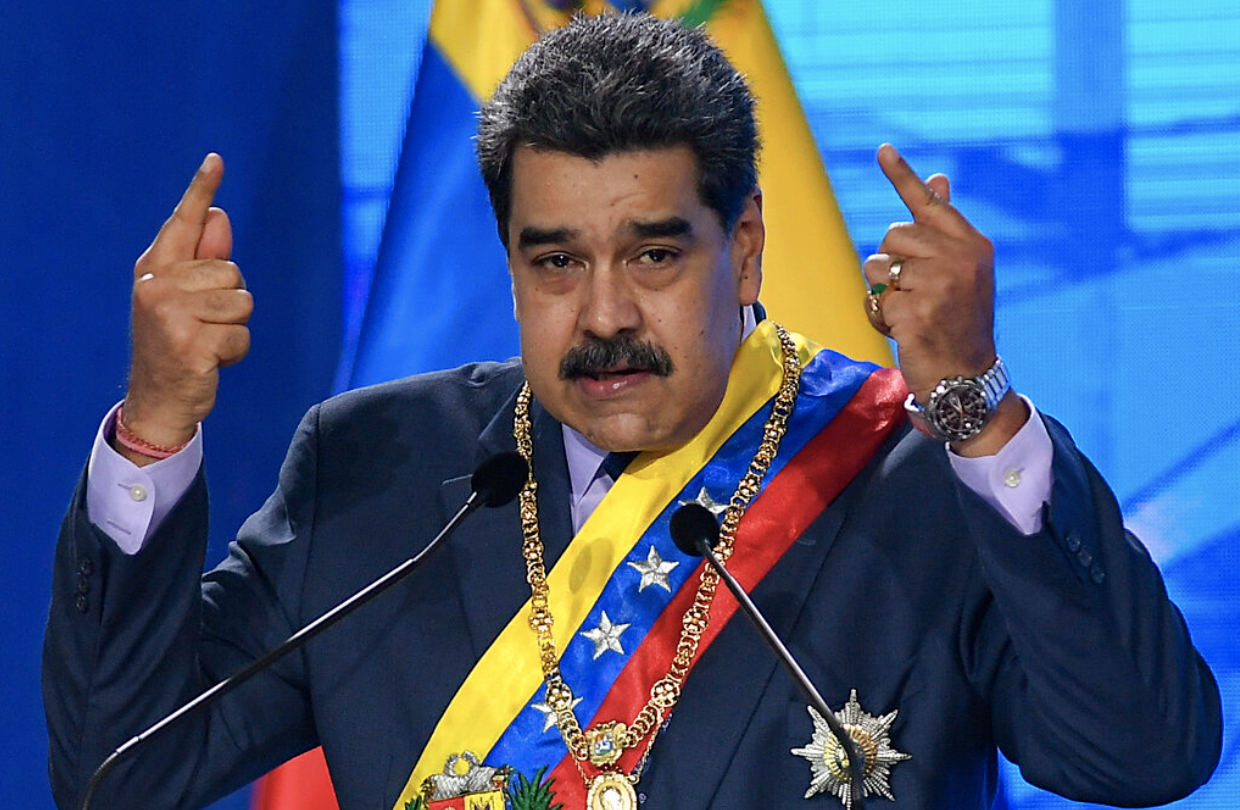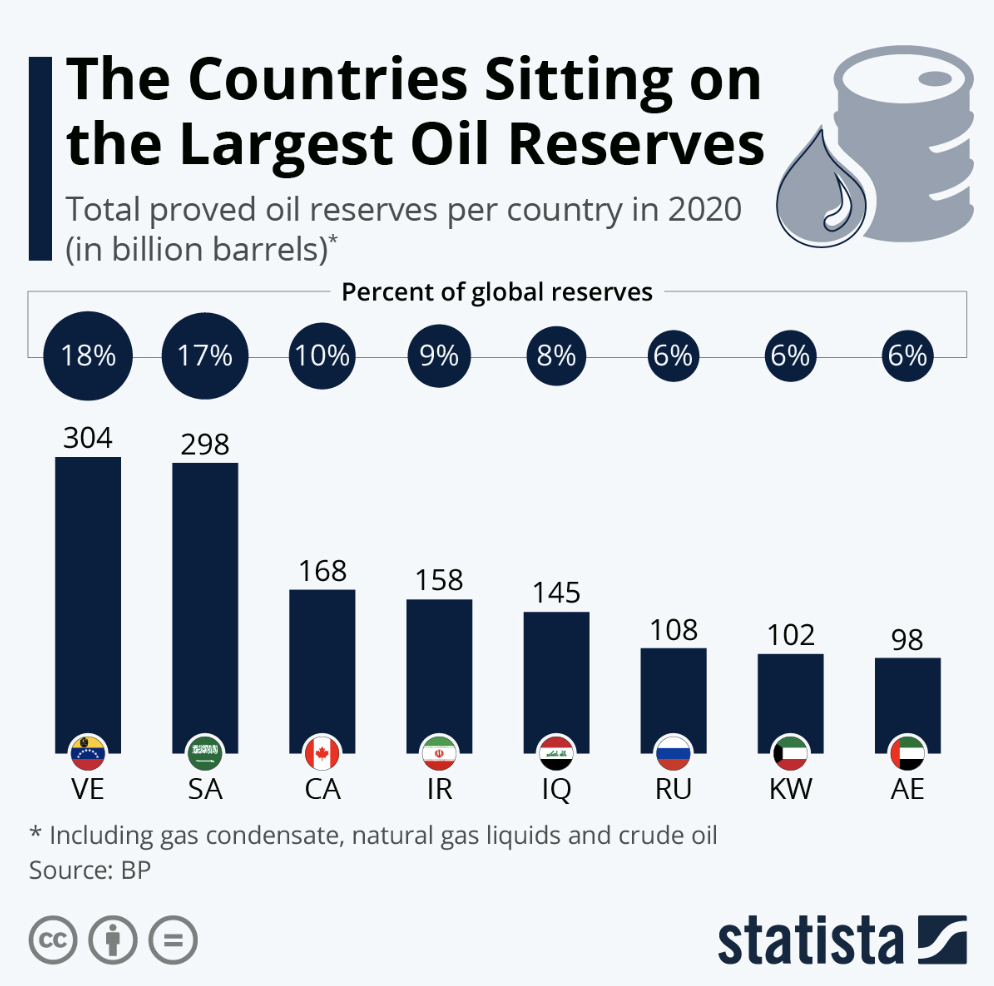Energy Crises Across the World Bring Gaze Back to Venezuela’s Oil Reserves
Maduro is now recognized as the head of state of Venezuela by a number of countries across the world. Source: AP Photo/Matias Delacroix
Amidst one of its worst energy crises, the United States is considering resuming oil pumping in Venezuela after years of imposing intense economic sanctions on the South American country. Though the deal is not yet finalized, the Biden administration has already established that this will only happen if Nicolás Maduro, the incumbent head of state of Venezuela, engages in talks with opposition parties to determine the necessary conditions to hold fair presidential elections in 2024.
After a controversial election in 2018, the US, alongside members of the Organization of American States (OAS), declared Maduro's presidency illegitimate, and recognized the leader appointed by the National Assembly, Juan Guaidó, as the legitimate President of Venezuela. Many American allies followed suit, with tough economic sanctions ratified to convince Maduro to step down. Nevertheless, now that Guaidó has failed to overthrow the interim president, even the United States seems to acknowledge Maduro as the de-facto leader of the country.
To further persuade Maduro to partake in negotiation, the US government proposed unfreezing Venezuelan state funds in American banks to help the country pay for imports of food, medicine, and equipment. This influx of capital and investment could be pivotal for the nation, which has been suffering from political and economic instability since Hugo Chavez's presidency in the early 2000s. Hyperinflation, famine, rising crime and mortality rates in the last two decades have driven nearly 6.8 million Venezuelans to flee the country, 20 percent of the population.
Many sources claim Venezuela has the largest oil reserves in the world in comparison to any other country. Source: Statista/Florian Zandt
While the desire to reestablish democratic values in Venezuela seems to be part of the reasoning behind this deal, the timing of its announcement reveals other motives. The ongoing war in Russia and Ukraine has significantly affected world oil supply, especially after sanctions on Russian producers were lifted in response to the attacks on Ukraine. Gasoline prices have skyrocketed in Europe and the United States as a result, driving inflation through the roof. To make things worse, the Organization of Petroleum Exporting Countries (OPEC) and its partner nations disclosed a plan last week to cut collective production to just two million barrels per day. This is the same week the Wall Street Journal reports the Biden administration's intentions to resume oil operations in Venezuela.
The Latin American country has some of the largest oil reserves in the world. Furthermore, scoring this deal would secure the United States and Europe a new supplier of fossil fuel while the Russian-Ukrainian conflict continues. If successful, this deal also could boost the Biden administration's approval leading up to midterm elections.
The US's desperate need for new oil suppliers leaves Maduro with the upper hand in this deal. Though the details of the proposition are still being worked out, the US’s next move is uncertain. Engaging in talks with opposition parties does not necessarily mean Maduro will step down from office. On the other hand, many fear that the influx of money in Venezuela could strengthen the leader's authoritarian regime.
Guaidó voiced opposition to the US easing economic sanctions on Maduro's government. Last week, he asked the US for the details on the deal, which aims to expand Chevron's license to operate in Venezuela. He claims the request would not be legal under Venezuelan law, and maintains that negotiations with Maduro will only legitimize his presidency.
If Maduro somehow meets US demands, this deal could create a chance for democracy again in Venezuela. North America and Europe could benefit from a long-term source of energy while also diminishing the Russian sphere of influence in Latin America, considering Venezuela’s history as a key Russian ally.
This situation underscores the amount of power the US continues to exercise in the unfolding of politics in Latin America. The deal may have severe consequences in the sociopolitical infrastructure of Venezuela: reconciling its polarized system, or destabilizing the country even more. With every potential outcome foreshadowing a serious chain of consequences, the US plays once more with Venezuela’s future.


